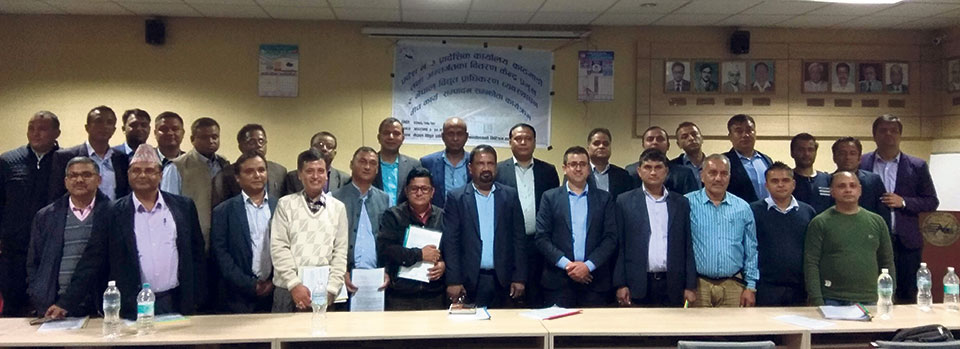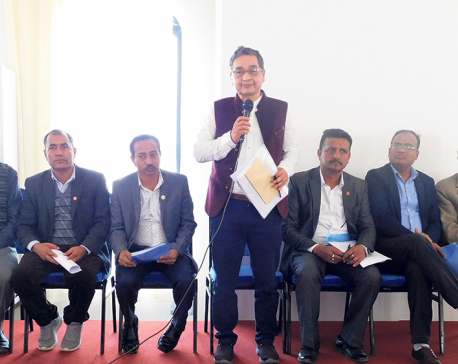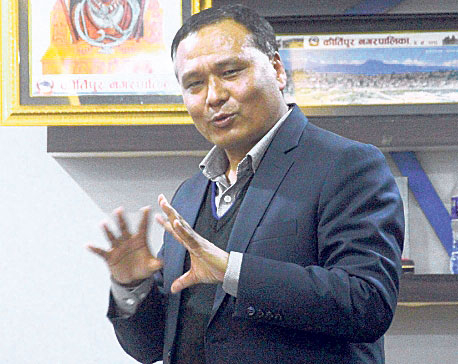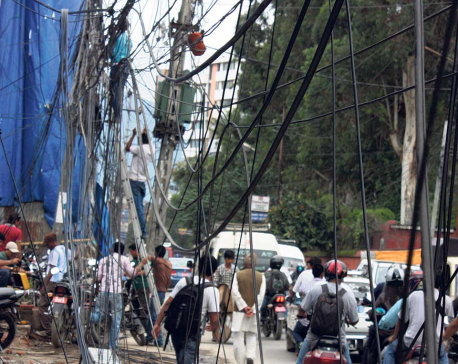
OR
NEA planning to add transformers to increase power consumption
Published On: November 17, 2019 08:03 AM NPT By: Republica | @RepublicaNepal

KATHMANDU, Nov 17: Nepal Electricity Authority (NEA) is planning to add new transformers as a strategy to increase the power consumption. The NEA came up with such plan to maintain the electrical load to 50% to let the consumers use as much electricity as they need.
The NEA has directed the distribution centers to add transformers and upgrade them in order to maintain the electrical load to 50% in the transformers.
NEA’s Managing Director Kulman Ghising, on the occasion of signing performance agreement by its distribution center chiefs in Kathmandu on Friday, said that it was a challenge to improve the distribution system and not let the produced power to go into waste. The NEA signed performance agreement with the chiefs of its distribution centers of Kathmandu, under Province 3 Office.
“We are moving forward with a plan to encourage the use of induction heaters at homes and to open charging stations for electric vehicles to increase electricity consumption. We need to build structures that can hold the load of induction heaters and charging stations, for which it is important to bring improvements in the transformers to maintain the load to less than 50%,” Ghising said, directing the distribution center chiefs.
“This will let the consumers use as much electricity as they need and on the other hand it will make the distribution system credible,” Ghising added. He also showed the determination to not let lack of budget hamper the work.
The NEA has been using 50, 100, 200, 300 and 500 KVA distribution transformers to distribute electricity among the consumers. The authority has added distribution substations with the capacity of 765 MVA to the system by either building a new one or upgrading in three years. The distribution capacity has been increased by 1,000 MW by installing about 10,000 distribution transformers.
It is projected that 1,000 MW power will be added to the national grid after the completion of under-construction Upper Tamakoshi Hydropower Project in the current fiscal year. To increase the access and consumption of electricity, the government has announced to electrify the entire country within three years. The authority as a part of its implementation announced full electrification of 40 districts and is working accordingly.
Ghising mentioned that the main challenge and problem were to raise electricity consumption in order to not let produced electricity go wasted. He stressed on the need of maximum distribution of meters, encouraging the usage of three-phase meters, and easing the supply of electricity to industries to solve the existing problem and increase the demand of electricity in Nepal.
The country is likely to face an electricity surplus soon. However, there remains a challenge of finding buyers for the electricity that Nepal will generate.
You May Like This

Entrepreneurs of Rupandehi warn of protests
BUTWAL, Feb 29: Entrepreneurs of Rupandehi have warned of protest after the Nepal Electricity Authority (NEA) issued a 35-day notice... Read More...

NEA MD to travel to Upper Tamakoshi project site every month
KATHMANDU, March 25: Managing Director of Nepal Electricity Authority Kulman Ghising will be travelling to Upper Tamakoshi project site in... Read More...

Electricity cables to go underground in Kathmandu
KATHMANDU, Feb 25: Nepal Electricity Authority (NEA) has started work to put power lines underground. ... Read More...







Just In
- NRB to provide collateral-free loans to foreign employment seekers
- NEB to publish Grade 12 results next week
- Body handover begins; Relatives remain dissatisfied with insurance, compensation amount
- NC defers its plan to join Koshi govt
- NRB to review microfinance loan interest rate
- 134 dead in floods and landslides since onset of monsoon this year
- Mahakali Irrigation Project sees only 22 percent physical progress in 18 years
- Singapore now holds world's most powerful passport; Nepal stays at 98th











Leave A Comment